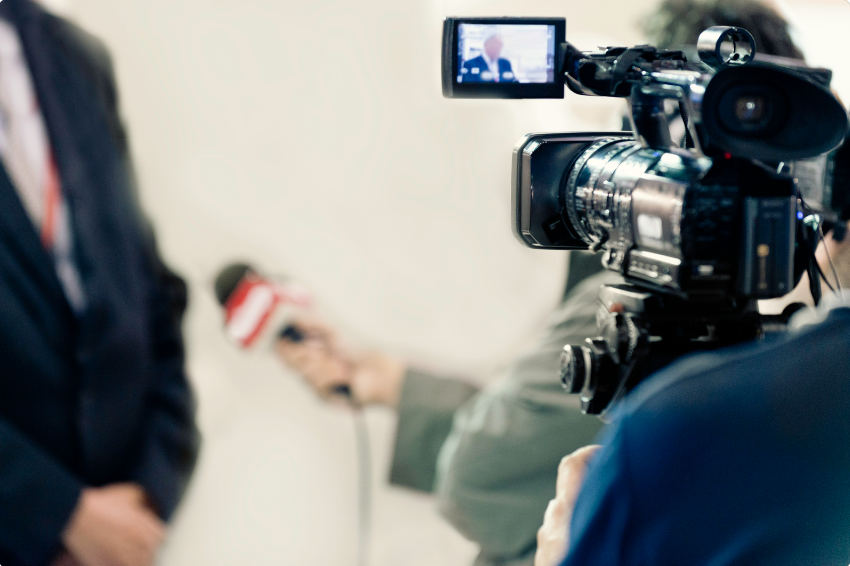Media Interview Rules Still Apply in the Age of Zoom

October 1, 2020
By Dan Ward, APR, CPRC
We may have thought we’d be completely back to normal by now, but COVID-19 had other ideas. While many businesses have reopened cautiously with new health and safety practices in place, others remain closed or are serviced by teams working remotely. If you’re anything like me, your office is still primarily serving as really expensive storage space for desks you can no longer use.
No matter which camp you may fall in, some COVID-related changes are here to stay. Case in point: socially distanced meetings via apps like Zoom or WebEx have become an essential and convenient way to gather, while adding a personal element that traditional conference calls often lack. According to CNN Business, Zoom’s profits skyrocketed 3,300% over the past year and its shares hit a record high last month. That’s a pretty big chunk of investors who believe Zoom is here to stay.
It’s not just meetings that have moved and will stay online. Media interviews will continue to move online as well, but even in that environment the old rules still apply. To help you stay on track, here’s a quick refresher based on our proprietary Message Matrix® media/message training system.
- Rule of Three – Every successful speaker, regardless of topic or context, lives by the Rule of Three. Put simply, choose three main points you want to communicate and stick to them. No more than three, and no fewer. Why? Just one or two would get repetitive and boring; more than three is too much for the listener to retain (or for the reporter to cram into a story, or for you to remember once the interview begins). Once you’ve determined your three key points, take a moment to think about how you can bridge back to them throughout the conversation.
- Respond Instead of Answering – One key to a successful media interview is the ability to respond instead of just providing the answer a reporter wants or expects. Bridging is a technique that helps you keep control of the interview. It doesn’t mean ignoring the initial question – it just means thinking first of the topic or issue to which the question pertains, and then providing a prepared response for that topic or issue. In other words, using the question as an opportunity to respond, rather than as a demand for an answer. A few good bridge phrases include:
- What I can tell you is …
- That’s an interesting point. Here’s what I’ve learned in that area …
- It’s too early to talk about that, but this is what we do know …
- Never Speculate – As always, resist the temptation to speculate, even when asked to do so. “What if” questions are more common in a time like this, but no one can predict what might happen next … including you. If you don’t know it for a fact, don’t say it in a media interview. That includes off-the-cuff remarks about the unknowable future.
- Never Discuss the Competition – Just don’t. Discussing the competition sets you up for a fall while simultaneously derailing YOUR interview. Gracefully demur, and then move on, redirecting the conversation to your business and your key points. You can bridge with phrases like “you’d really need to ask them that question” or “our entire focus is on our employees and customers.” This is a tip we share often when doing media training.
- Even if it’s More Comfortable, Don’t Get Comfortable – Here’s a new rule for the Zoom era! If conducting your media interview from the comfort of home, prepare for it with the same care and seriousness you would have for a face-to-face conversation and treat it with the same respect throughout the interview. This means much more than simply donning a professional ensemble from the waist up … it means taking the time to review your messaging and to consider how your home environment may affect your actions. You may be more comfortable at home and risk being so relaxed that you are easily caught off-guard by a reporter. Others may not quite use the term “relaxed” to describe their work-from-home experience (especially if you have two children doing virtual classes, like mine are enjoying). Either way, be cognizant of how your space affects your actions and do your best to prepare ahead of time.
Keep these media interview tips in mind and you’ve got a head start on a great interview, via online or in person. Happy interviewing!




